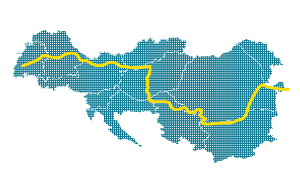H2020
Call identifier:
SFS-38-2018 - Highly efficient management of soil quality and land resources
Type of funding:
Purpose of the call :
Production, protection and remediation are the three major components for securing global food supply on limited land resources for the growing global population. As competition between urban, industrial/transportation and agricultural land uses increases, food production needs to be maintained on decreasing land areas. To achieve a new balance on a higher output level, with possibly less input is the ultimate goal of resource use efficiency, sustainable management and competitiveness of agriculture. Land suitability-based management with prioritisation of targets (outputs) has to be in place and life cycle assessment of nutrient flows need to be included. Harmonisation between environmental and social targets has to be made on the basis of common/harmonised data and parameters of soil and land. Research should focus more on priority areas in the optimisation of land use and environmental protection taking into consideration the specific ecological and socio-economic conditions in China and Europe.
The EU depends strongly on external sources for the supply of key fertilisers used in agriculture. Resource depletion and an increasing global demand for mineral fertilisers may, in the long term, lead to price tensions with an impact on food security. Mineral-based fertilisation also poses significant environmental problems, linked e.g. to the amounts of fossil energy needed to produce and transport these fertilisers. At the same time, large amounts of minerals are being dispersed in the environment through a large variety of organic waste streams, resulting in soil, water and air pollution. Agro-food specialisation has led to regional imbalances: whilst in some regions a nutrient overabundance is causing severe environmental impacts (e.g. nitrate pollution), other are experiencing nutrient deficits. These contrasting effects may also be observed between locations within the same region.
Several technologies are being developed to recover and re-use nutrients from organic by-products, but many are insufficiently mature and the characteristics of end-products do not always match end-user preferences. It is expected that the EU ‘circular economy package’ will boost the emergence and commercialisation of such new fertilisers, hence it is important to understand their agronomic and environmental performance in order to establish adequate policies, guidelines and application rules.
Minimum and maximum financial support:
up to EUR 5 million
Eligible applicants:
See Annex A, B, C of the Work Programme
More information about the Program and/or Call:
Application deadline :
23 January 2019 17:00:00Deadline: 13 February 2018 17:00:00Deadline:2nd stage Deadline: 11 September 2018 17:00:00
Country:
EU
Country Scope:

